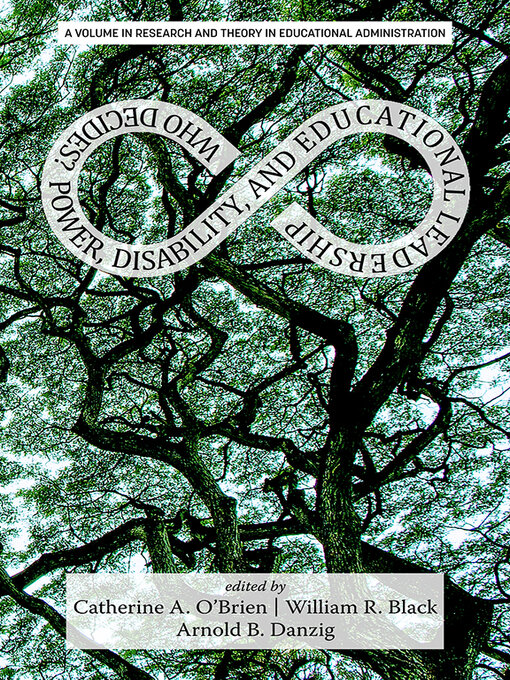Over the last quarter century, educational leadership as a field has developed a broad strand of research that engages issues of social justice, equity and diversity. This effort includes the work of many scholars who advocate for a variety of equity-oriented leadership preparation approaches. Critical scholarship in Education Administration and Educational Politics is concerned with questions of power and in various ways asks questions around who gets to decide. In this volume, we ask who decides how to organize schools around criteria of ability and/or disability and what these decisions imply for leadership in schools. In line with this broader critical tradition of inquiry, this volume seeks to interrogate policies, research and personnel preparation practices which constitute interactions, discourses, and institutions that construct and enact ability and disability within the disciplinary field of education leadership. To do so, we present contributions from multidisciplinary perspectives.The volume is organized around four themes: 1. Leadership and Dis/Ability: Ontology, Epistemology, and Intersectionalities; 2. Educational Leaders and Dis/ability: Policies in Practice; 3. Experience and Power in Schools; 4. Advocacy, Leverage, and the Preparation of School Leaders. Intertwined within each theme are chapters, which explore theoretical and conceptual themes along with chapters that focus on empirical data and narratives that bring personal experiences to the discussion of disabilities and to the multiple ways in which disability shapes experiences in schools. Taken as a whole, the volume covers new territory in the study of educational leadership and dis/abilities at home, school, and work.
- New eBook Additions
- Most Popular
- Try Something Different
- Deaf History
- Deaf Literature
- Deaf Community: In Their Own Words
- American Sign Language
- Children of Deaf Adults: In Their Own Words
- See all

